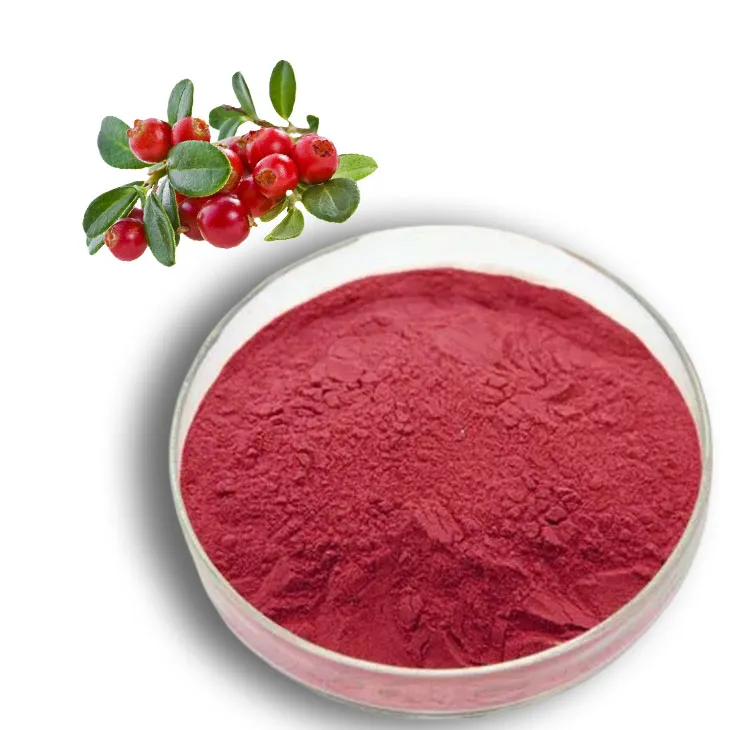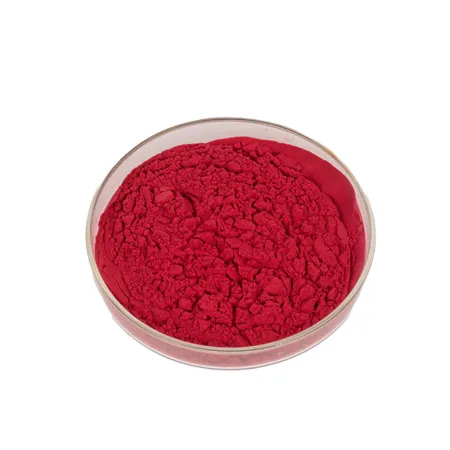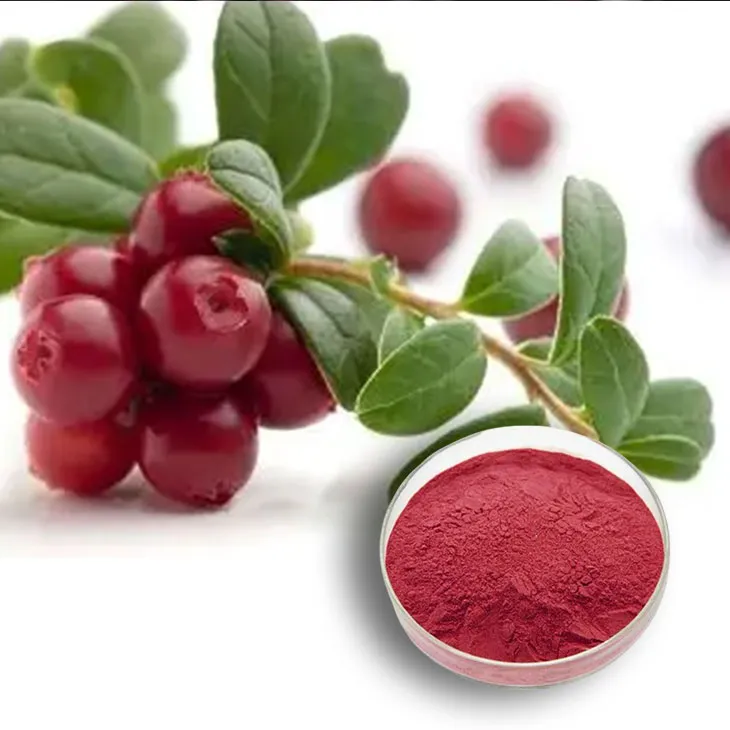- 0086-571-85302990
- sales@greenskybio.com
Cranberry Extract: Benefits, Uses and Possible Side Effects
2024-11-12

1. Introduction
Cranberries, those small, tart berries, have been recognized for their health - promoting properties for centuries. Cranberry Extract, which is derived from these berries, has gained significant popularity in recent years. It is rich in various bioactive compounds that offer a wide range of potential benefits to human health. However, like any supplement, it is important to understand both its positive aspects and possible negative consequences.

2. Benefits of Cranberry Extract
2.1 Antioxidant Properties
Cranberry Extract is loaded with antioxidants. These are substances that can neutralize harmful free radicals in the body. Free radicals are unstable molecules that can cause damage to cells, DNA, and proteins, and are associated with various chronic diseases such as cancer, heart disease, and neurodegenerative disorders. The antioxidants in cranberry extract, such as flavonoids, phenolic acids, and proanthocyanidins, help to protect the body's cells from oxidative stress. For example, proanthocyanidins are known for their ability to scavenge free radicals more effectively than many other antioxidant compounds.
2.2 Urinary Tract Health
One of the most well - known benefits of cranberry extract is its role in promoting a healthy urinary tract. It helps to prevent urinary tract infections (UTIs). Cranberries contain compounds that can prevent bacteria, particularly Escherichia coli (E. coli), from adhering to the walls of the urinary tract. When bacteria are unable to attach, they are more easily flushed out of the body during urination. This is especially important for women, who are more prone to UTIs than men. Studies have shown that regular consumption of cranberry extract can significantly reduce the recurrence rate of UTIs in women with a history of these infections.
2.3 Heart Health
The antioxidants in cranberry extract also contribute to heart health. They can help to reduce inflammation in the blood vessels, which is a key factor in the development of atherosclerosis (hardening of the arteries). By reducing inflammation, cranberry extract may lower the risk of heart disease. Additionally, some studies suggest that cranberry extract may have a positive effect on blood lipid levels. For instance, it may help to lower LDL (low - density lipoprotein) cholesterol, often referred to as "bad" cholesterol, while increasing HDL (high - density lipoprotein) cholesterol, or "good" cholesterol.
2.4 Oral Health
Cranberry extract has potential benefits for oral health as well. The antibacterial properties of cranberries can help to combat the bacteria that cause dental plaque and gingivitis. Plaque is a sticky film of bacteria that forms on the teeth, and if not removed, can lead to cavities and gum disease. By inhibiting the growth of these bacteria, cranberry extract may contribute to better oral hygiene and a reduced risk of dental problems.

3. Uses of Cranberry Extract
3.1 Dietary Supplements
Cranberry extract is commonly available as a dietary supplement. It can be found in various forms, such as capsules, tablets, and liquid extracts. People often take cranberry supplements to support urinary tract health, especially those who are at a higher risk of UTIs, such as women, the elderly, and individuals with certain medical conditions. These supplements are usually taken daily, following the recommended dosage instructions on the product label.
3.2 Functional Foods and Beverages
Cranberry extract is also used in the production of functional foods and beverages. Cranberry - flavored juices, for example, are not only popular for their taste but also for their potential health benefits. In addition to juices, cranberry extract can be added to yogurts, smoothies, and other food products. This allows consumers to incorporate the benefits of cranberry extract into their daily diet in a more convenient and enjoyable way.
3.3 Cosmetics and Skincare
The antioxidant and antibacterial properties of cranberry extract make it a valuable ingredient in cosmetics and skincare products. It can be found in creams, lotions, and serums. In skincare, cranberry extract may help to protect the skin from environmental damage caused by free radicals, such as UV radiation and pollution. It may also have anti - inflammatory properties that can soothe irritated skin and potentially reduce the signs of aging, such as wrinkles and fine lines.

4. Possible Side Effects of Cranberry Extract
4.1 Gastrointestinal Issues
Some people may experience gastrointestinal side effects when taking cranberry extract. These can include nausea, vomiting, diarrhea, or an upset stomach. These symptoms are more likely to occur when taking high doses of cranberry extract or when a person has a sensitive stomach. For example, if someone takes a large amount of cranberry extract supplements without eating, they may be more prone to experiencing these digestive problems.
4.2 Interaction with Medications
Cranberry extract may interact with certain medications. For instance, it can interact with blood - thinning medications such as warfarin. Cranberry extract may increase the risk of bleeding when taken with these medications, as it can affect the blood's clotting ability. It is important for individuals taking medications to consult their healthcare provider before starting cranberry extract supplements to avoid any potential adverse interactions.
4.3 Allergic Reactions
Although rare, some people may be allergic to cranberry extract. Allergic reactions can range from mild symptoms such as itching, rash, or hives to more severe reactions like difficulty breathing or anaphylaxis. People with known allergies to cranberries or other related fruits should avoid cranberry extract products.

5. Conclusion
Cranberry extract offers a variety of potential benefits, including antioxidant protection, urinary tract health support, heart health promotion, and oral health improvement. It has diverse uses in dietary supplements, functional foods, and cosmetics. However, it is not without potential side effects, such as gastrointestinal issues, interactions with medications, and allergic reactions. Before starting to use cranberry extract, whether as a supplement or in other forms, it is advisable to consult a healthcare professional, especially for those with underlying health conditions or those taking medications. By understanding both the benefits and possible side effects, individuals can make informed decisions about whether cranberry extract is a suitable addition to their health and wellness routine.
FAQ:
What are the main antioxidants in cranberry extract?
Cranberry extract contains several important antioxidants, such as proanthocyanidins. These antioxidants help to neutralize free radicals in the body, which can cause damage to cells and contribute to various health problems.
How does cranberry extract prevent urinary tract infections?
Cranberry extract contains compounds that prevent bacteria, particularly Escherichia coli, from adhering to the walls of the urinary tract. By doing so, it reduces the likelihood of bacteria building up and causing an infection.
Are there any other health benefits of cranberry extract besides urinary tract health?
Yes, cranberry extract may also have benefits for heart health. The antioxidants in it can help reduce inflammation and oxidative stress, which are associated with heart disease. Additionally, it may have some potential in improving oral health by inhibiting the growth of certain oral bacteria.
What are the possible side effects of cranberry extract?
Some people may experience stomach upset, diarrhea, or an allergic reaction to cranberry extract. Also, if consumed in large amounts, it may increase the risk of kidney stones in those who are predisposed to them, as cranberries contain oxalates.
How much cranberry extract should be taken daily?
The appropriate dosage can vary depending on the individual's health and the specific product. In general, for preventing urinary tract infections, a common recommendation is around 400 - 500 mg of cranberry extract daily. However, it's best to consult a healthcare provider for personalized advice.
Related literature
- The Health Benefits of Cranberry Extract: A Review"
- "Cranberry Extract and Urinary Tract Health: Mechanisms and Efficacy"
- "Potential Side Effects of Cranberry Consumption: A Comprehensive Analysis"
- ▶ Hesperidin
- ▶ citrus bioflavonoids
- ▶ plant extract
- ▶ lycopene
- ▶ Diosmin
- ▶ Grape seed extract
- ▶ Sea buckthorn Juice Powder
- ▶ Beetroot powder
- ▶ Hops Extract
- ▶ Artichoke Extract
- ▶ Reishi mushroom extract
- ▶ Astaxanthin
- ▶ Green Tea Extract
- ▶ Curcumin Extract
- ▶ Horse Chestnut Extract
- ▶ Other Problems
- ▶ Boswellia Serrata Extract
- ▶ Resveratrol Extract
- ▶ Marigold Extract
- ▶ Grape Leaf Extract
- ▶ blog3
-
High purity olive leaf extract
2024-11-12
-
Lavender oil extraction method
2024-11-12
-
100% organic virgin sea buckthorn fruit oil
2024-11-12
-
Lotus leaf extract powder factory in China
2024-11-12
-
China aged garlic extract supplier
2024-11-12
-
Deer antler extract powder manufacturer
2024-11-12
-
Saw palmetto extract vs whole herb
2024-11-12
-
Okra Extract
2024-11-12
-
Jujube Extract
2024-11-12
-
Fig Extract
2024-11-12
-
Pueraria Lobata Extract
2024-11-12
-
Mangosteen extract powder
2024-11-12
-
Chia Seed Powder
2024-11-12
-
Medicinal Marshmallow Extract
2024-11-12
-
Curcumin Extract
2024-11-12
-
Dandelion Leaf Extract
2024-11-12
-
Mulberry leaf Extract
2024-11-12





















